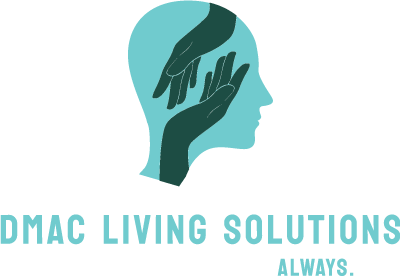Code of Governance
This Code of Governance outlines the principles and practices that guide the leadership, management, and operations of DMAC Living Solutions, a private limited healthcare provider in Ireland that delivers services to individuals with mental health needs, disabilities, older persons, and young people.
Purpose
To promote transparency, accountability, person-centred care, and continuous improvement across the organisation. This Code supports compliance with HIQA standards, relevant legislation, and best practices in governance.
Governance Structure
- The Board of Directors provides strategic oversight and ensures the organisation meets its statutory and regulatory obligations.
- The Executive Team manages day-to-day operations and service delivery.
- The Person in Charge (PIC) is responsible for the governance of each designated centre.
- Quality and Risk Committees ensure clinical and corporate governance systems are in place and functioning.
Key Principles
- Accountability: All staff and leadership are accountable for safe and effective service delivery.
- Transparency: Decisions and actions are clearly documented and communicated.
- Integrity: Ethical conduct is expected in all activities.
- Inclusivity: Individuals receiving care are actively involved in decisions about their support.
- Continuous Improvement: The organisation is committed to learning, development, and evidence-based practice.
Legal and Regulatory Compliance
- Operate in accordance with the Companies Act 2014, Health Act 2007, HIQA standards, GDPR, and Safeguarding Vulnerable Persons policy.
- All services must be delivered in line with the Statement of Purpose.
Risk and Quality Management
- Regular risk assessments are carried out across all areas of service delivery.
- Incident and complaint logs are maintained and reviewed.
- Quality improvement plans are implemented and monitored.
Human Resources and Staffing
- Staff are recruited fairly, Garda vetted, trained, and supported through supervision and development.
- Roles and responsibilities are clearly defined.
Stakeholder Engagement
- Service users and their families are consulted and involved in service planning and review.
- Feedback mechanisms are in place to promote participation and accountability.
Financial Management
- The organisation maintains accurate financial records and complies with statutory requirements.
- Budgets are managed in line with service needs and governance oversight.
